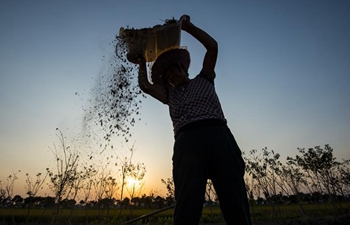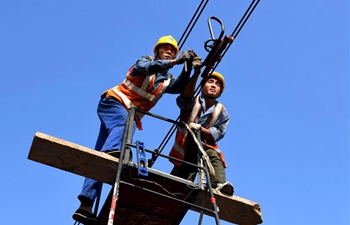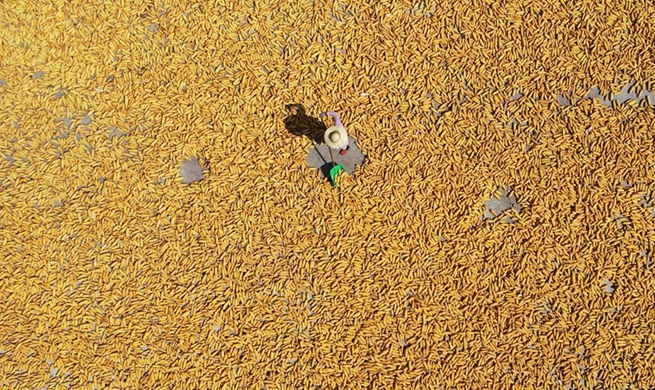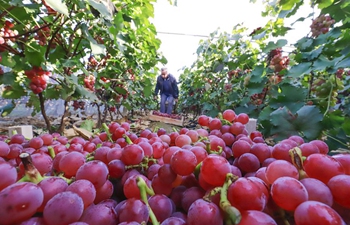LONDON, Sept. 25 (Xinhua) -- Life expectancy in Britain has come to a halt, figures from the Office for National Statistics (ONS) revealed Tuesday.
ONS said the country's life expectancy at birth did not improve in 2015 to 2017 and remained at 79.2 years for males and 82.9 years for females.
Life expectancy for some in Scotland, Wales and Northern Ireland has actually dropped, the figures show. In the years 2015 to 2017 life expectancy at birth declined by 0.1 years in for males and females in Scotland and Wales, and for males in Northern Ireland.
In England life expectancy at birth for males and females has remained unchanged, as well for females in Northern Ireland.
Sophie Sanders, ONS statistician at the Center for Ageing and Demography, said: "The slowdown in life expectancy improvements in the UK has continued as 2015 to 2017 saw the lowest improvements in life expectancy since the start of our series in 1980 to 1982.
"Some decreases in life expectancy at birth have been seen in Scotland, Wales and Northern Ireland whilst in England life expectancy has remained unchanged from 2014 to 2016."
ONS said around one in five new-born males and one in three new-born females born in 2015 to 2017 could expect to live to at least 90. However, the chance of survival to age 90 from birth has remained virtually unchanged since 2012 to 2014.
"Life expectancy in the UK has remained lower in this period than many other comparable countries internationally, such as Switzerland, Italy and New Zealand," said ONS.
The figures were described as shocking by Dr Kingsley Purdam, senior lecturer in social research methods and statistics at the University of Manchester.
He said: "Poverty, austerity and cuts to public services are impacting on how long people are living in the UK. We all need to look after our health but many of us, including the most vulnerable populations, need help at a time when evidence suggests that services are being cut."
Purdam said the lost years of life have an impact not just on the individual but on people who are ultimately left behind such as partners, children and grandchildren.












